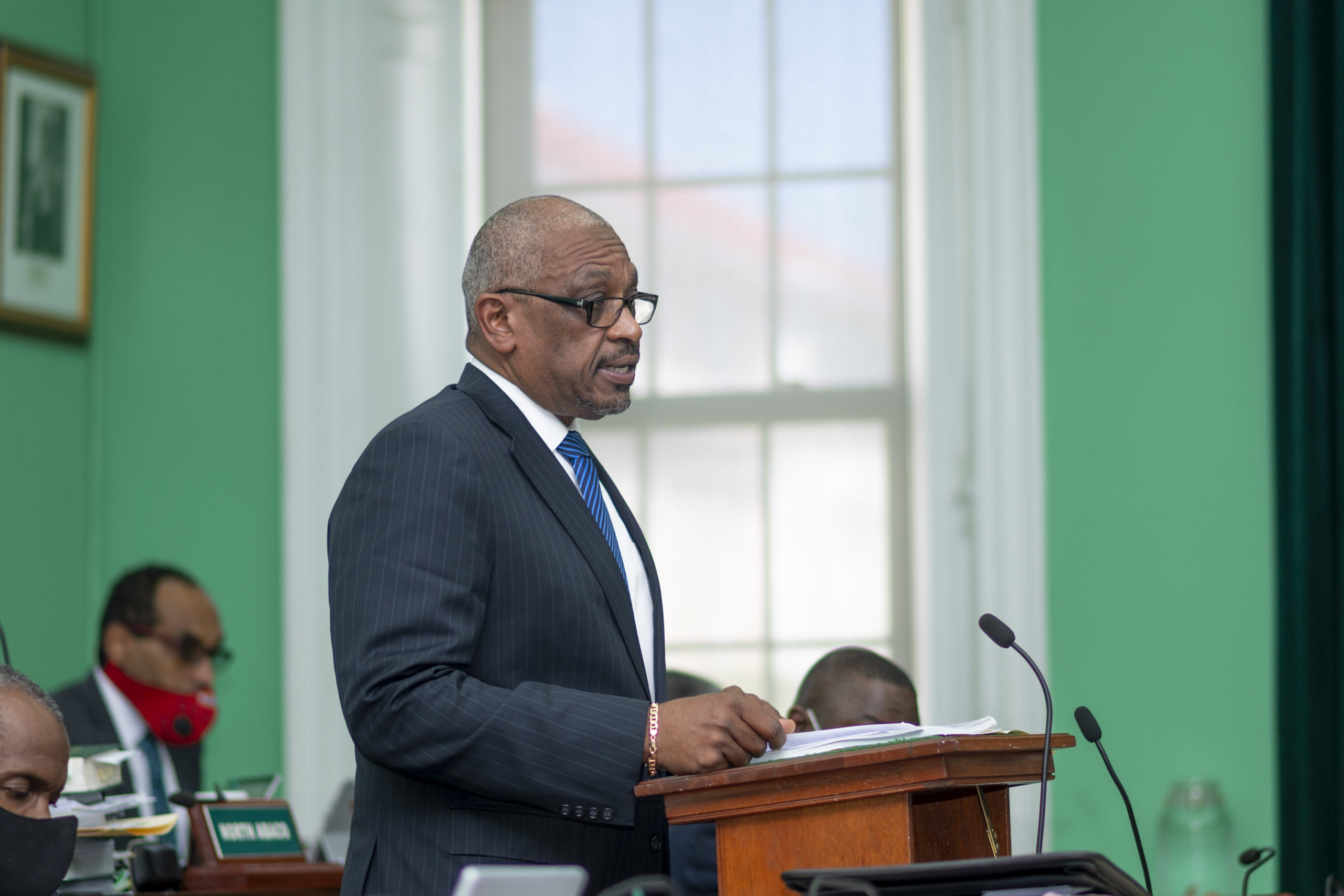Mr. Speaker,
Today I rise to present several signature pieces of draft legislation to this honourable house. They complete a compendium of financial and statistical legislation that is critical to the advancement of sound fiscal management and evidenced based decision making in The Bahamas.
The legislation included in the compendium are:
- the Public Debt Management Bill, 2021;
- the Public Finance Management Bill, 2021;
- the Statistics Bill, 2021 and
- the Public Procurement Bill, 2020 that was first read in this Chamber last year.
In keeping with the standard set by the Fiscal Responsibility Act, 2018, which ushered in new levels of transparency and accountability, these draft pieces of legislation will remake and modernize the very foundation of public finance management in The Bahamas.
Mr. Speaker,
A core tenet of my government is the promise of accountability and transparency, particularly when it comes to the management of the people’s money.
These bills will continue to deliver on that promise.
They will further upgrade and bring our fiscal governance in line with international best practices by fostering much enhanced transparency and accountability in the way we manage the public purse.
Mr. Speaker,
The Public Finance Management (or PFM) Bill is designed to address the weaknesses that have been chronicled in the existing public finance law, namely the Financial Administration and Audit Act, 2010 or the “FAA Act”.
The PFM Bill transitions to a principles-based approach to public financial management thereby focusing on results, rather than taking an administrative approach, as was the case with the FAA.
This Bill requires outcomes-based budgeting and reporting to support a comprehensive management of the budget.
The Public Debt Management Bill (or PDM Bill) seeks to create a modern and comprehensive legal framework that permits a clearly articulated and transparent framework for public debt management.
The overriding objective of the PDM Bill is to consolidate and modernize existing debt management provisions.
The legislation will create necessary linkages with the Fiscal Responsibility Act, which provides parameters for debt ceilings that correspond to the trajectory of the country’s economic growth.
This legislation will set the framework for the country’s debt management strategy going forward.
I also present for first reading the Statistics Bill, 2021. The purpose of this draft legislation is to establish the Bahamas National Statistical Institute – a quasi-independent entity that will replace the current Department of Statistics.
The bill also seeks to create a formal National Statistical System, encompassing the inputs and requirements of a range of public and civil society stakeholders.
The new Institute working within the parameters of a formal National Statistical System will establish and institutionalize common standards for collecting, compiling, analyzing and publishing official statistics.
It will bolster substantially the ability of public stakeholders to collect data and produce quality statistics in line with global standards. Importantly, the bill also enshrines the independence of the public entity responsible for the collection of official statistics, while strengthening its capacity to enforce its mandate.
I remind this honourable house of the Public Procurement Bill, 2020 tabled last year. The government intends to move this legislation to a second reading and consideration of this House.
This draft legislation is a massive step forward to bringing more credibility to the procurement process.
The draft Bill will establish the Public Procurement Department that will manage all matters related to public procurement in the country.
It will be responsible for the development, oversight and functioning of the full procurement framework throughout the public sector.
It will be undergirded by an open and fully transparent electronic procurement system that has already been deployed.
It will require publication of the key details of all significant contracts undertaken by central government and state-owned enterprises.
Mr. Speaker,
These Bills have been drafted in line with international best practices and have been commended by international agencies including the Caribbean Regional Technical Assistance Centre of the International Monetary Fund and the Caribbean Development Bank.
All four of the bills have been put out for public consultation and have been published on government websites and social media pages.
The government solicited direct feedback from key civil society stakeholders, as well as the Official Opposition.
We are grateful for the feedback we received from the various organizations, some of which have been incorporated into the bills being presented.
Mr. Speaker, I thank you.
